Kraaifontein residents march for basic services
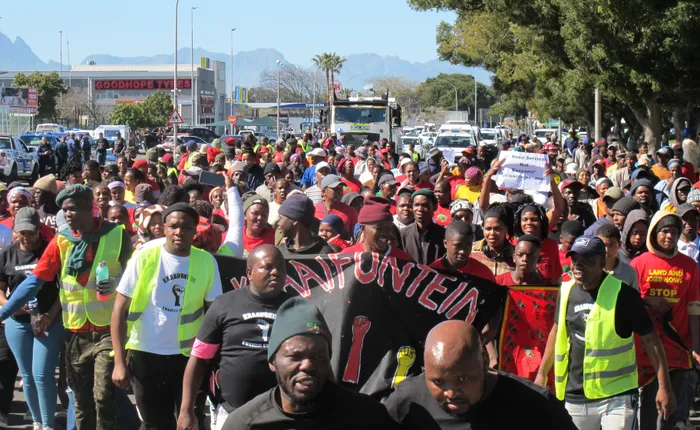
Hundreds of Kraaifontein residents held a peaceful march on Wednesday, August 27, calling on local police, the Kraaifontein Community Health Centre, and Subcouncil 2 to take action on a range of basic service issues.
Image: Sibulele Kasa
Hundreds of Kraaifontein residents took to the streets on Wednesday, August 27, in a peaceful march demanding urgent action on crime, healthcare, and basic service delivery.
Protesters gathered at the traffic circle near Bloekombos Secondary School in the morning, lifting their voices with struggle songs and speeches under the watch of police and law enforcement.
The march made its way to the Kraaifontein Police Station, then on to the community health centre, ending at the Subcouncil 2 offices in Brighton Road.
Residents handed over a memorandum, calling for a written response within five working days. Their demands included stronger crime prevention from the police, faster service at the health centre, and consistent maintenance of roads, streetlights, and the sewage system by Subcouncil 2.
Uviwe Ndikolo, the leader of the march, said sewage overflow was an unbearable issue that needed urgent attention.
“We need an upgrade of the sewage system, and also the issue of stormwater drainage. The township is becoming too bad. Pipes are too small to carry the sewage and the water that comes out of Kraaifontein,” he told Northern News.
Representatives who received the memorandum said they still needed to study it before they could respond.
There are currently several streets affected by the sewage overflow in Wallacedene and Bloekombos, including La Boheme, Maorela, and Mangondia Streets, among others. Community members, informal traders, and public transport drivers have been affected by the sewage spillage.
A taxi driver, Abongile Ntabeni, from Bloekombos, said the sewage floods the wire nails and pieces of glass onto the road, which made their tires wear out prematurely.
“I changed tires twice this year and I am driving with a spare wheel on the left back side. The taxi owner is also complaining because of the persistent issue. This taxi is still new, but it's making noise because the shock absorbers are broken.”
Another taxi driver, Luxolo Homba, from Wallacedene, said what stood out for him was the costs that he had to pay at the car wash.
“People walk on top of the sewage water and enter the vehicle. Now we have a situation where we need to take the vehicle to the car wash more often, because the smell will remain inside the taxi. It becomes worse when there is hot sunlight,” he said.
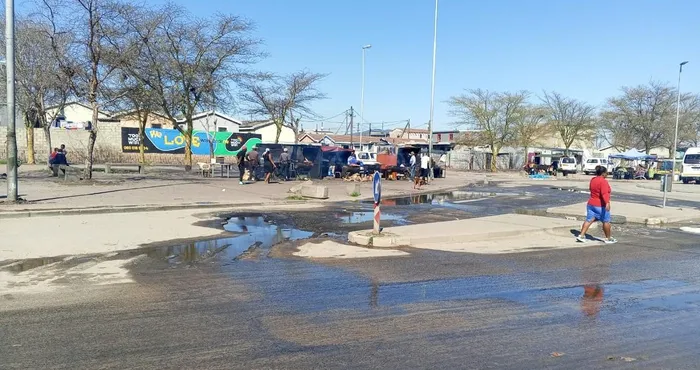
An informal trader who operate a stand of Shisanyama (braaied meat) near the sewage at the La Boheme Street, in Wallacedene, said they cannot leave that spot because that's where customers are found.
Image: Sibulele Kasa
Some informal traders operate stands of Shisanyama (braaied meat) near the sewage at the La Boheme Street in Wallacedene.
“We are losing business because customers cannot come and eat due to the sewer that is flooding in front of us. Sometimes they do not want to even buy because of the smell.
“This is a great spot for this business because it is close to the taxi rank and, generally, you get many people who typically enjoy themselves in this area, but no one will be interested in eating when the area is like this,” said an informal trader, who preferred to remain anonymous for fear of her safety.
Zahid Badroodien, the mayoral committee member for water and sanitation, said the primary challenge in Bloekombos is the continued misuse of the sewer network, where rags, rubble, nappies, tyres, bins, and other solid waste were dumped, blocking the pipes and ultimately causing spillages.
“These items should never enter the system. The sewer system is designed to handle wastewater and toilet paper only. Improving user behaviour is the most direct way to reduce blockages and overflows. Lasting change is only possible when everyone plays their part in protecting our shared infrastructure,” he said.
He said the area also faced pressure from an increasing population, while the infrastructure was originally designed to service a smaller population.
The illegal connections further exacerbate strain on the sewer system, he added.
The City previously said in a statement that during the 2024/2025 financial year, their sewer depot maintenance team attended to 1 270 sewer blockages in Wallacedene and 546 in Bloekombos.
The 47% of blockages in Bloekombos, and 60% in Wallacedene, were due to foreign objects dumped into the sewer network, according to the City.
These areas, including Scottsdene, the City added, had been prioritised for sewer pipe replacements in the current 2025/26 financial year, as part of a R355 million City-wide programme to upgrade ageing infrastructure and reduce overflows.
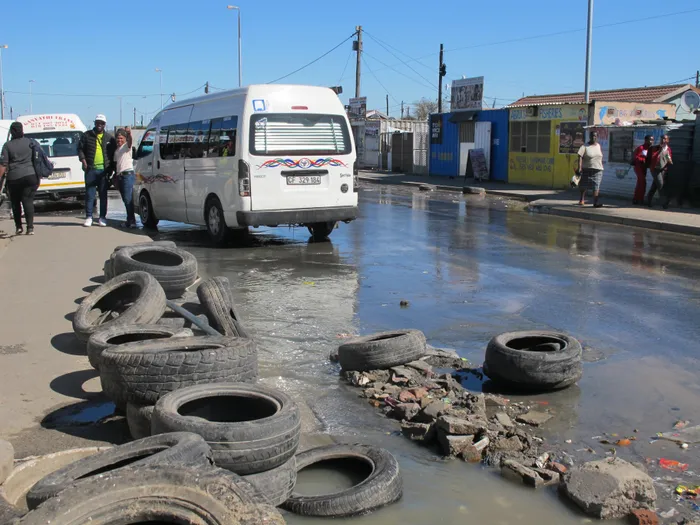
Taxis are also affected by the sewage overflows. Facing the camera are Loxolo Homba, left, from Wallacedene and Abongile Ntabeni from Bloekombos.
Image: Sibulele Kasa
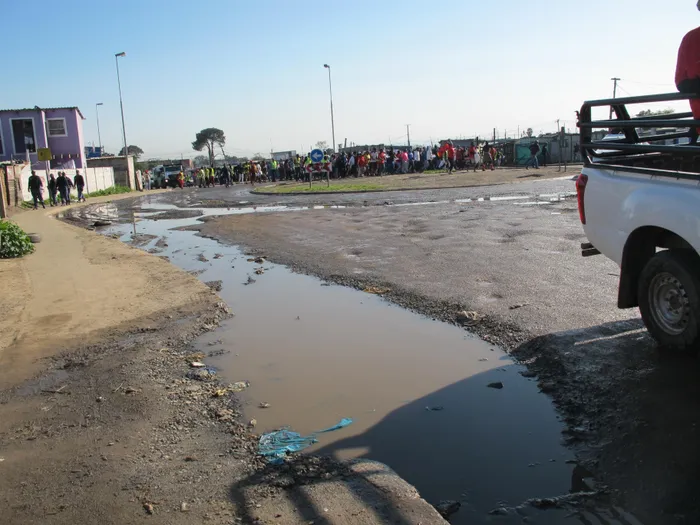
Protesters approaching the Maroela Circle in Wallacedene, where potholes and a pool of sewage cover the road.
Image: Sibulele Kasa
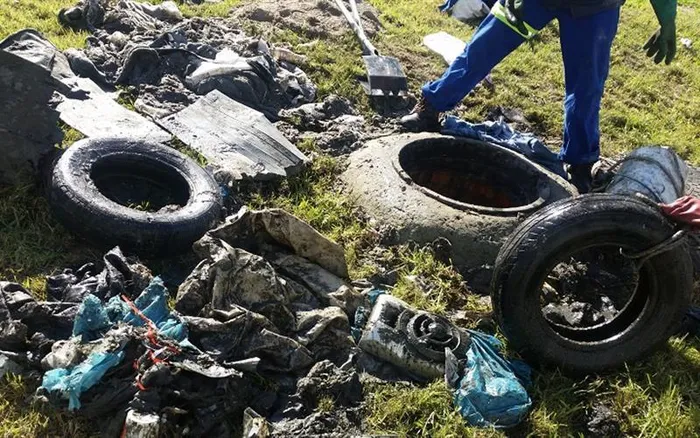
Some of the items that the City teams usually recover from the sewage pipelines. The materials in this picture were recovered in Mfuleni in June 2023.
Image: Supplied